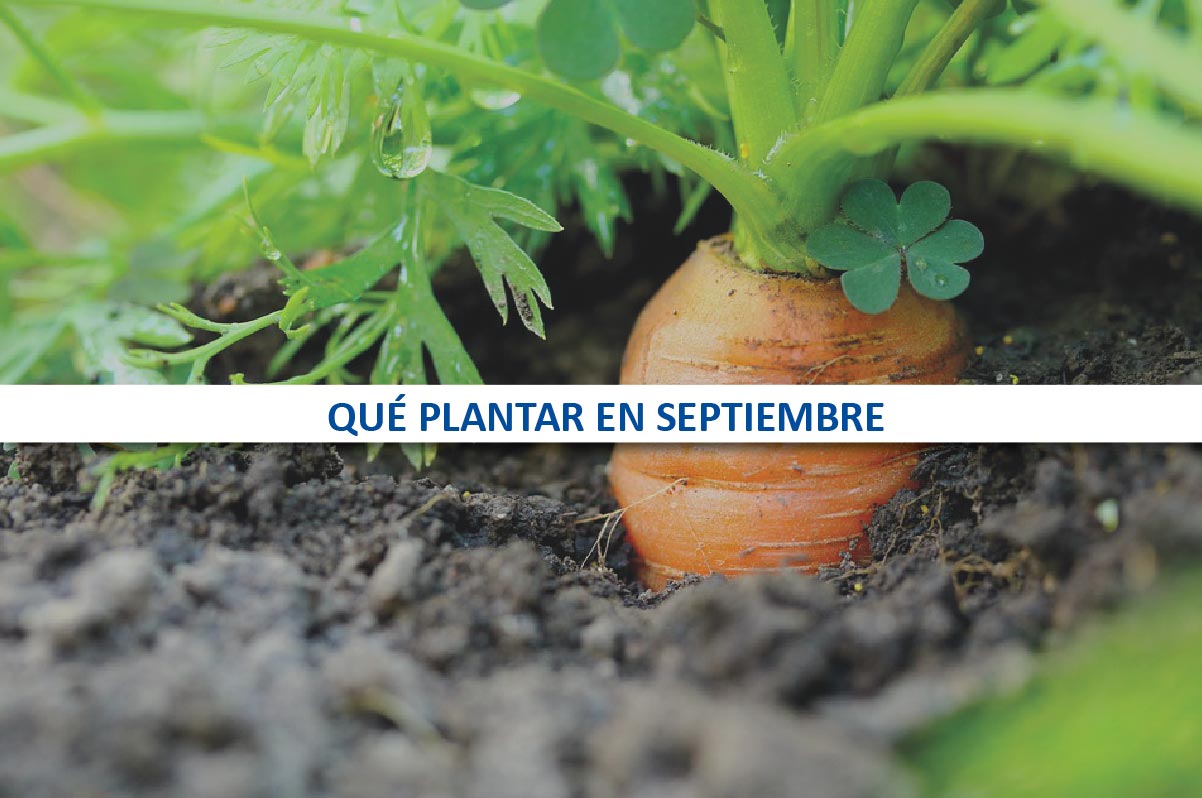September is the month when children go back to school and we go back to routine, but it is also the month to start new projects, undertake new dreams, hobbies, or just to resume something you left behind. Your orchard, perhaps? If that’s your case, keep reading and learn what to plant in September.
Organic orchards are becoming a very recurrent hobby, both for young and older people. However, we usually do not know what to grow, how, or where to start. September is a good month to do so, and it is also a transition period: when the last fruits of summer are collected and make way to sow what you are going to collect during the coming months ahead.
So, if you are starting your organic orchard and want to know what to plant in September, or you are taking it up again, in this article we give you some tips!
Tips on what to plant in September
Sowing calendar
September means new school year, it’s a planning period, so it is a good time to set up your own calendar and plan what you are going to grow. The calendarization of your organic orchard will help you to be less likely to have pests or to find yourself with lack of space. So, get yourself a diary and write down everything important regarding your orchard.
Fertilizer for your plants
Summer crops need a lot of nutrients for their growth. So, when September arrives, we will need to renew all the nutrients in the soil of the orchard so that the new plants can grow in the best way. It is highly recommended to add worm castings and/or compost to your fertilizer. Another tip is to prepare your own compost by mixing coconut fiber and hummus, and you will see how it improves aeration and water retention.
Collect your own seeds
If you want to optimize costs, this is a very good idea. Many of the seeds, such as beans, peppers, eggplants, pumpkins, watermelon, etc., are very easy to extract: you just have to take the seed from those fruits (peppers, beans, eggplants, pumpkin, watermelon and melon, among many others). The seeds must be taken from the fruits that we have left to ripen for some time on the plant, and thus let them develop entirely. When you have already obtained them, you only have to let them dry in the sun and then let them rest in a cool, dry place.
Keep snails away from your orchard
September is a month characterized by many rains, and so snails appear. So, we recommend you to add diatomaceous soil to your crops to keep them away.
What can I plant in September?
As we said, September is a good month to plant your seeds. For example: zucchini, chard, carrots, arugula, onion, parsley, potato, spinach, endive, lentils, lettuce, peas, and more.
Another option, which perhaps is a little more expensive, is to plant in seedlings. It is a good choice if it is your first time with an organic orchard. In this case, we recommend planting these vegetables: lettuce, cauliflower, artichoke, cabbage, broccoli and onion.
Be careful! If you decide to use seedlings you will have to protect them, since September is characterized by a changing temperature. Some days are hot as in summer and some others are cold and stormy. So don’t risk it and protect your crops and seedlings.
As for flowers, September is a good time to plant pansies, also known as violets (in seedlings). This type of flower resists well to the upcoming cold season and will also bring a lot of color and life to your organic orchard.
